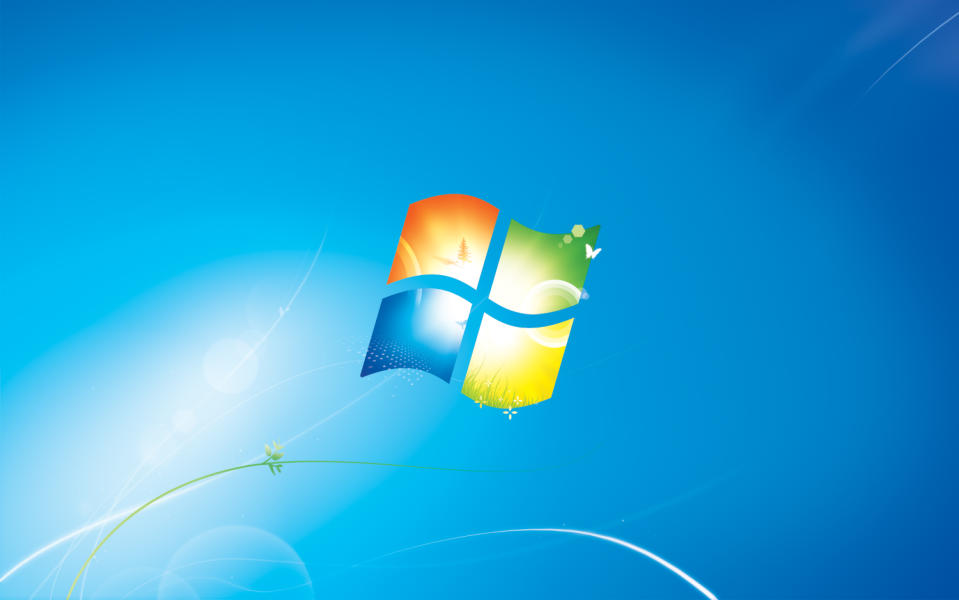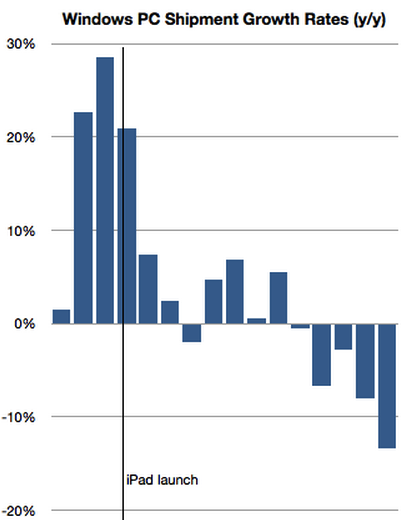It’s not Windows’ world anymore

Any rival computing platform trying to break through 10 years ago faced a daunting challenge since Microsoft’s Windows was by far the most widely used desktop operating system in the world. So instead of taking on Windows directly on its home turf, Apple decided to create brand new turf to work from with iOS. As Google quickly followed suit, Microsoft saw its once-impenetrable dominance of the computing platform market evaporate.
[More from BGR: iPhone 5S: New leaked photos, purported full specs point to biggest ‘S’ upgrade ever]
Business Insider has posted three charts — two of its own making and one from Asymco — showing the dramatic decline and fall of the Windows empire that really started to snowball in the first quarter of 2009. Ever since the start of 2009, shipments of Windows-based PCs have peaked and have now started to decline even as Microsoft’s share of the still-growing smartphone and tablet markets remains stagnant at best.
[More from BGR: The Boy Genius Report: iPhone 5S to feature indestructible LiquidMetal case]
Asymco’s chart, pictured directly below, is the most interesting because it shows how the slowdown and eventual decline of PC shipment growth coincided with the launch of the iPad back in 2010.
Business Insider’s two charts, meanwhile, show how personal computers have gone from being the central computing interface to being more of a niche product that users upgrade far less often than they upgrade smartphones and tablets. The decline in PCs has been good for iOS and especially for Android, which has become the favored mobile operating system for big-name electronics manufacturers such as Samsung, Sony, LG and HTC.
All told, the charts show a rapid decline in clout for a platform that was once so widely used that many considered it a monopoly.
This article was originally published on BGR.com



